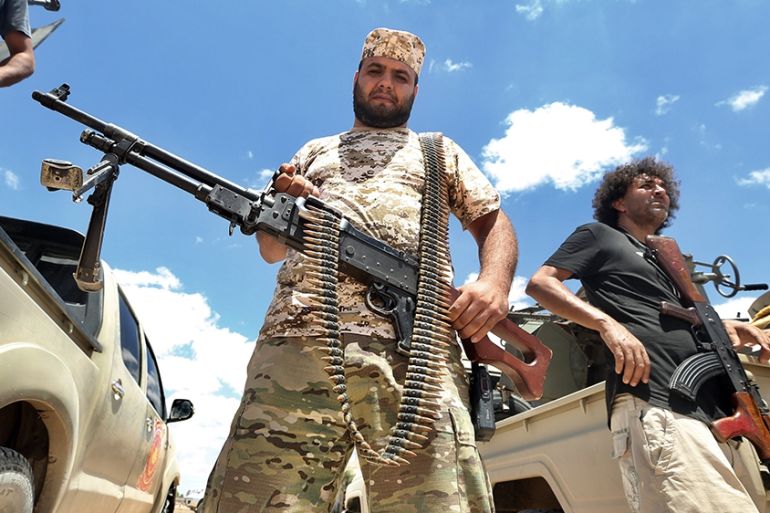Libya: US Ambassador, Turkish officials talk ways to end war
US Ambassador Norland discussed steps towards a complete withdrawal of foreign forces and mercenaries from Libya.

US Ambassador to Libya Richard Norland consulted with senior Turkish officials in Ankara on Wednesday about “the urgent need to support Libyan voices genuinely seeking an end to the conflict and return to UN-facilitated political dialogue” according to a statement by the US embassy in Tripoli.
Norland also discussed ways to achieve a demilitarised solution in central Libya, with a complete withdrawal of foreign forces and mercenaries from Libya, and stressed the need to enable the country’s National Oil Corporation to resume its vital work, the statement said.
Keep reading
list of 4 itemsSeven jurors seated on the second day of Trump’s New York hush-money trial
Six takeaways from first day of Trump’s New York hush money criminal trial
Day 1 of Donald Trump’s first criminal trial
The visit followed phone calls between US President Donald Trump and his Turkish counterpart Recep Tayyip Erdogan, according to the US embassy.
Earlier in the week, Norland was in Egypt’s capital, Cairo, where he discussed with Egyptian officials ways to bring peace to the war-torn North African nation. He also met Tobruk-based Speaker of the House of Representatives Aqila Saleh.
Rival governments
Oil-rich Libya was plunged into chaos when a NATO-backed uprising in 2011 overthrew longtime ruler Muammar Gaddafi, who was later killed. The country has since split between rival east- and west-based administrations, each backed by militias and foreign governments.
In April 2019, the eastern-based forces of renegade military commander Khalifa Haftar launched an offensive to seize the capital, Tripoli, from the internationally-recognised Government of National Accord (GNA).
But Haftar’s 14-month campaign collapsed last month when the GNA forces, with Turkish support, gained the upper hand, driving his forces from the outskirts of Tripoli and other western towns. The GNA’s military success depended partly on Turkish-supplied drones that pushed back Haftar’s self-styled Libyan National Army (LNA) from Libya’s skies.
While the GNA is supported by Turkey, Haftar’s LNA is backed by Egypt, the United Arab Emirates (UAE), and Russia.
Amid rising tensions, neighbouring Egypt threatened to send troops into Libya if the Turkish-backed GNA forces try to seize the strategic city of Sirte – the gateway to Libya’s eastern oilfields.
Last month, the Egyptian parliament gave a greenlight for possible military intervention, but Turkey warned any Egyptian deployment in Libya would hamper efforts to end the fighting.